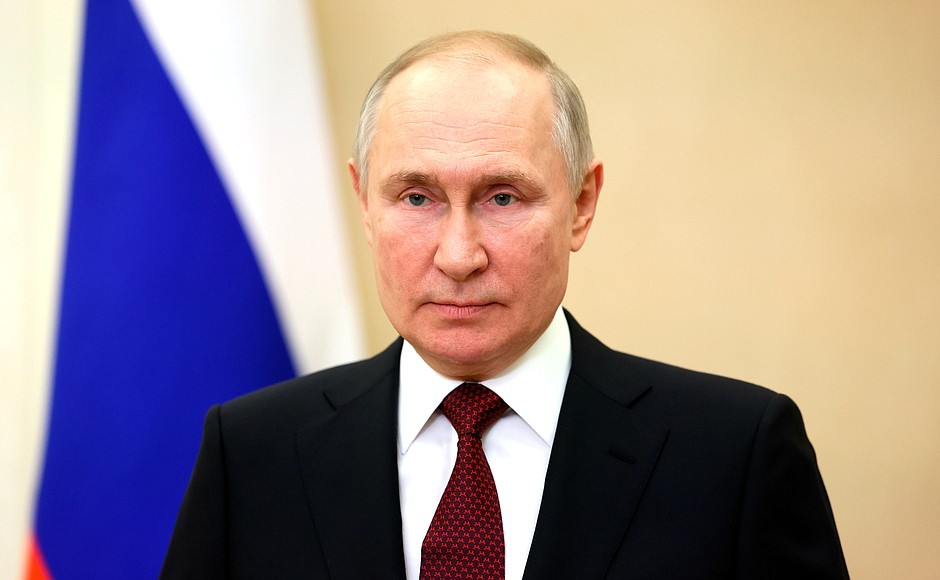
President of Russia Vladimir Putin: Colleagues,
I am delighted to welcome defence ministers of the Shanghai Cooperation Organisation and CIS member states to Moscow.
I think this meeting is timely and very significant. Cooperation as part of the SCO and the CIS enables us to attain a wide range of objectives, primarily having to do with protecting our countries from external threats and ensuring global and regional stability while relying on mutual respect and consideration of each other's interests.
This is especially important today as new drastic challenges are emerging, and major geopolitical shifts are taking place. The outlines of a truly multipolar world order are appearing before our eyes: new development centres are being formed in Asia, Africa and Latin America, which are increasingly defending their national interests, protecting their sovereignty, and the right to choose their own development trajectory. It is simply impossible to resist these objective historic processes.
At the same time, the conflict potential is growing in the world, as a direct consequence of the attempts, by certain Western elites, to maintain their political, economic, financial, military and ideological dominance. They would go to any lengths to preserve it, even consciously exacerbate chaos and cause an international escalation.
The United States and its satellites rely on the power factor. They have actually destroyed the architecture of strategic stability the world had been building for decades, aggressively expanding NATO’s geography.
They are resorting to illegal economic and trade sanctions to contain and derail any alternative development models; they are using methods such as “colour revolutions” to displace unwanted governments and foment military conflicts and escalate tension and confrontation in various regions around the world with their open provocations.
We see the grave consequences of such actions in Ukraine today. The West has been shamelessly draining and exploiting its resources for years, while encouraging genocide and terror in Donbass, in fact turning that country into a colony. Now the West is cynically using the Ukrainian people as cannon fodder, as a battering ram against Russia, continuing to supply Ukraine with weapons and ammunition, sending mercenaries, and pushing it towards a suicidal path.
I am convinced that the nature and scale of today's threats raise the requirements concerning cooperation between our defence agencies. It is imperative to work in cooperation and build a more flexible and sustainable security and cooperation system that can handle the current challenges. It should not be based on some mythical unwritten rules that no one has ever seen, or on someone's dominance or monopoly, but only on international rights and respect for each other's interests.
We consider it necessary to continue to develop within the SCO and the CIS a constant exchange of defence policy information, to share experience of building the national armed forces, to expand defence cooperation, and to put the latest weapons and equipment into service.
I would like to note that for many years now our respective countries’ military contingents have been practicing coordination during joint exercises and other operational and combat training events. Manoeuvres of the CSTO rapid response and rapid deployment, reconnaissance and logistics collective forces, exercises of the Joint CIS Air Defence System, as well as the SCO anti-terrorist command and staff exercises are held regularly. Such joint training and addressing non-standard tasks are important for improving the quality of military command and control.
Joint peacekeeping missions have become exceptionally important as well. It is crucial to further improve the peacekeeping units’ operational capabilities and to keep them involved in UN peace-keeping efforts.
We appreciate the longstanding traditions of cooperation between the SCO and the CIS in the field of training and advanced training of military personnel. We will continue to expand this key area and to use the Russian military universities and academies’ scientific potential, basic educational and methodological facilities and combat training centres of the Russian Armed Forces.
In closing, I would like to wish productive work to the participants. I am sure that close partnership in the defence sphere will raise our countries’ standing and influence, contribute to strengthening security and stability in Eurasia and the world as a whole and, without a doubt, will promote the traditions of friendship and trust between our countries and peoples.
Thank you for your attention.